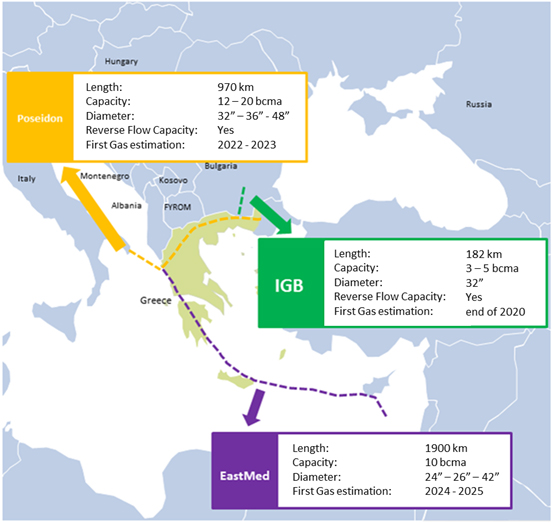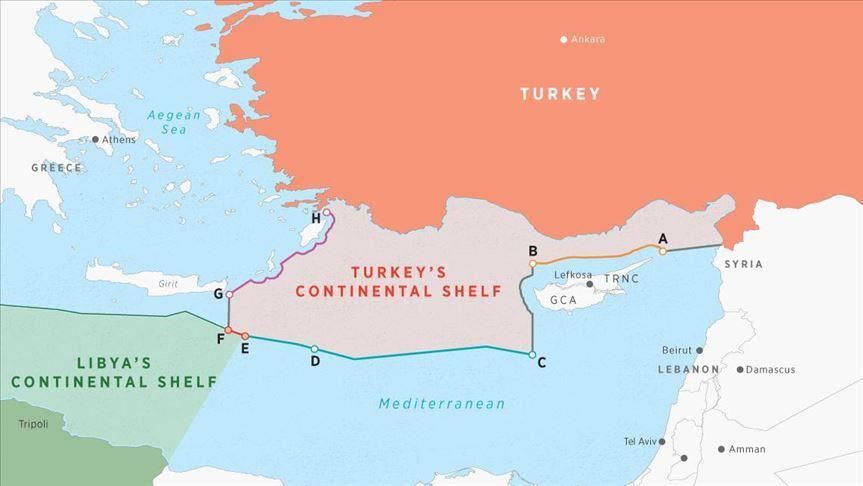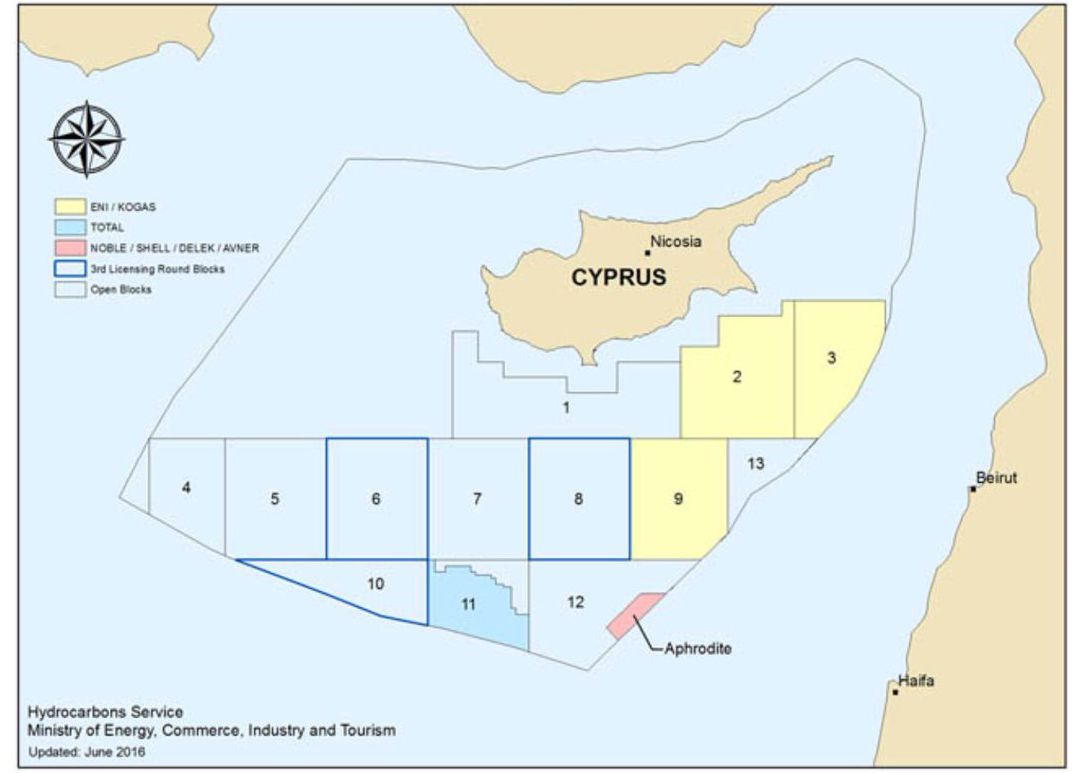Greece, Cyprus and Israel Sign Trans-Mediterranean Gas Pipeline Deal
On Thursday, Greece, Cyprus and Israel signed a landmark agreement to build the EastMed pipeline - a subsea natural gas line under the Mediterranean that will link the three nations' markets. Cyprus and Israel are on the verge of major offshore natural gas developments, and a pipeline to Greece will allow them to export their production to the EU market. Cypriot President Nicos Anastasiades, Greek Prime Minister Kyriakos Mitsotakis and Israeli Prime Minister Benjamin Netanyahu signed the accord at a ceremony in Athens on Thursday afternoon.
The $7 billion pipeline will have an initial capacity of about 10 billion cubic meters of natural gas per year. It will connect Cypriot and Israeli offshore fields to a shoreside receiving point on Crete, with an onward connection to the Greek mainland. From there, additional pipelines (below) will provide access to Italy and to the rest of Europe.

The EastMed pipeline (in purple) and related Greek pipeline developments (DEPA)
Turkey, which is locked in a long-running maritime boundary dispute with Cyprus, opposes the deal. “The most economical and secure route to utilize the natural resources in the eastern Mediterranean and deliver them to consumption markets in Europe, including our country, is Turkey,” Turkish Foreign Ministry spokesman Hami Aksoy said in a statement after the signing.
Disputed boundaries
On Sunday, Greek Prime Minister Kyriakos Mitsotakis called for the International Court of Justice in the Hague (ICJ) to intervene if Greece and Turkey cannot reach an agreement on their maritime boundaries in the Mediterranean and Aegean. Cyprus issued a similar call in December after Turkey announced new, expansive maritime claims that threaten to interfere with neighboring nations' plans for offshore energy development.
On November 27, Turkey signed an unusual boundary agreement with Libya, laying out a Turkish outer continental shelf claim stretching across the Mediterranean from Antalya to Crete. The Turkish claim shares a small boundary with an adjacent Libyan continental shelf claim, and this border is technically the subject of the agreement. However, the deal does not primarily affect Libyan interests. The new Turkish claim area overlaps with Cypriot and Greek maritime claims, and it covers regions with strong potential for natural gas exploration. It also includes areas through which the EastMed pipeline would pass.

The Turkish continental shelf claim between Cyprus and Crete (Anadolu)


that matters most
Get the latest maritime news delivered to your inbox daily.
Existing Cypriot E&P offshore lease blocks and continental shelf boundaries, which overlap the new Turkish claim area (Cyprus Ministry of Energy, Commerce, Industry and Tourism)
